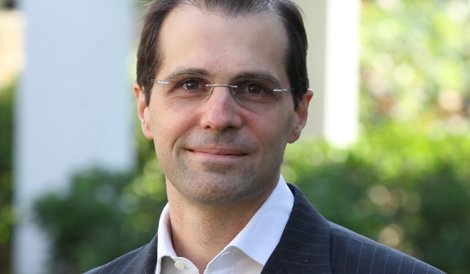GreenDataNet – a consortium of vendors, end users and academia – has announced ambitious plans to invent new ways to cut data center power consumption and create a smart grid.
At its offices in Morges in Switzerland, project leader power vendor Eaton outlined the collective aims to drastically reduce energy wastage and make distribution of power more intelligent.
In January 2014 the European Commission awarded a €2.9m grant to a consortium led by power management vendor Eaton, with a brief to create technology and processes that lead to more energy-efficient data centers.
The consortium is a mixture of industry and researchers, comprising of the Swiss Federal Institute of Technology Lausanne (EPFL), car maker Nissan, data center builder ICTroom, Credit Suisse, researcher the French Alternative Energies and Atomic Energy Commission (CEA) and the University of Trento (UNITN).
Project manager Eaton has been given three years to create demos of new inventions and to produce research papers.
Among the stated objectives of the project are the creation of a power distribution grid that would help urban data centers to source 80% of their power from renewable sources such as wind, hydro and solar power.
Another target is the lowering of the typical data center power usage effectiveness (PUE) from today’s average of 1.8 to less than 1.3.
GreenDataNet aims to achieve these goals by creating better systems for energy monitoring and management.
The use of IT, power, cooling and storage needs to be improved on servers and racks, networks and across data centers, said Eaton.
One of the biggest problems today is the mismatch between the supply of power and the consumption by data centers, said Cyrille Brisson, VP for power quality at Eaton’s EMEA division.
“A lot of power from wind turbines is generated at night in places miles away from urban data centres,” Brisson said.
“It’s in the wrong place at the wrong time on the wrong system. If energy can be stored, managed and distributed more efficiently, then we will be closer to creating an intelligent grid.”
Marcel Ledergerber, VP of data center facilities at Credit Suisse, will work full time on the project, providing the insight of a data center manager of a global enterprise.
A key research pillar at EPFL’s EcoCloud is the tighter integration of software and hardware platforms with the infrastructure to optimize energy use in the data center. Meanwhile, car maker Nissan will provide EV Lithium-ion batteries to be developed as a possible future storage system for power.
If data centers can make efficiency gains and networks can run on renewable, the EC funded project will pay for itself by creating new markets for storing and sharing energy, Brisson said.
“The collective savings and opportunities will benefit not just the industry but the community as a whole,” Brisson said.

